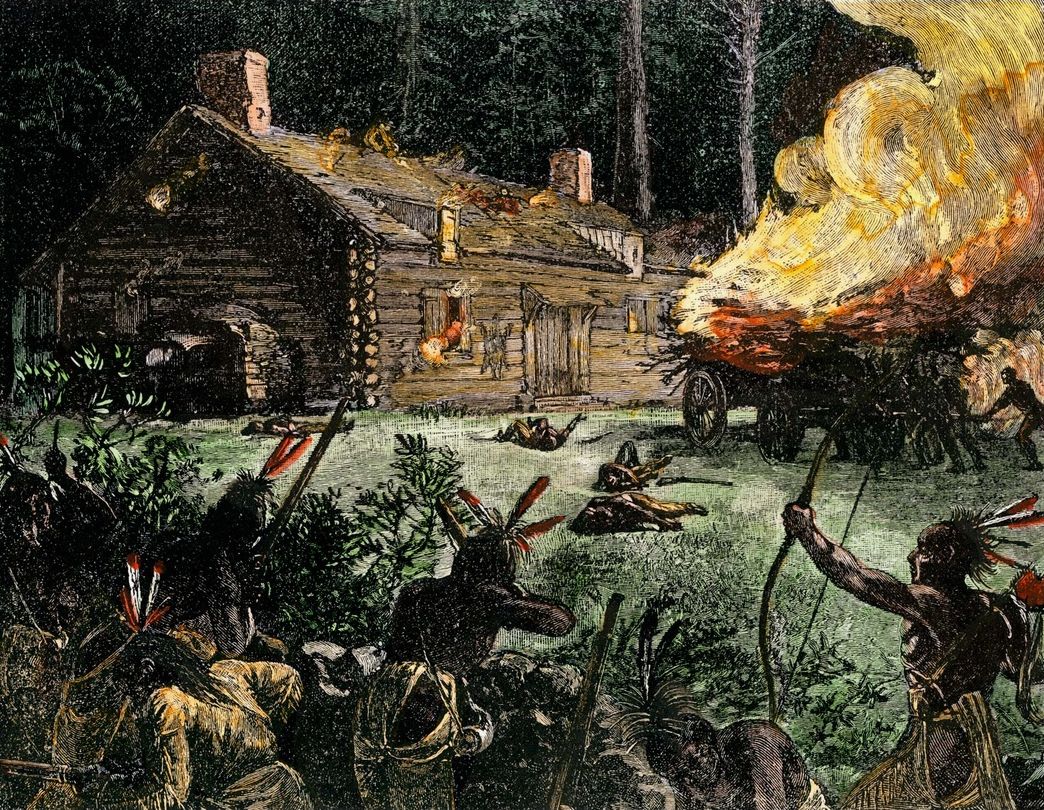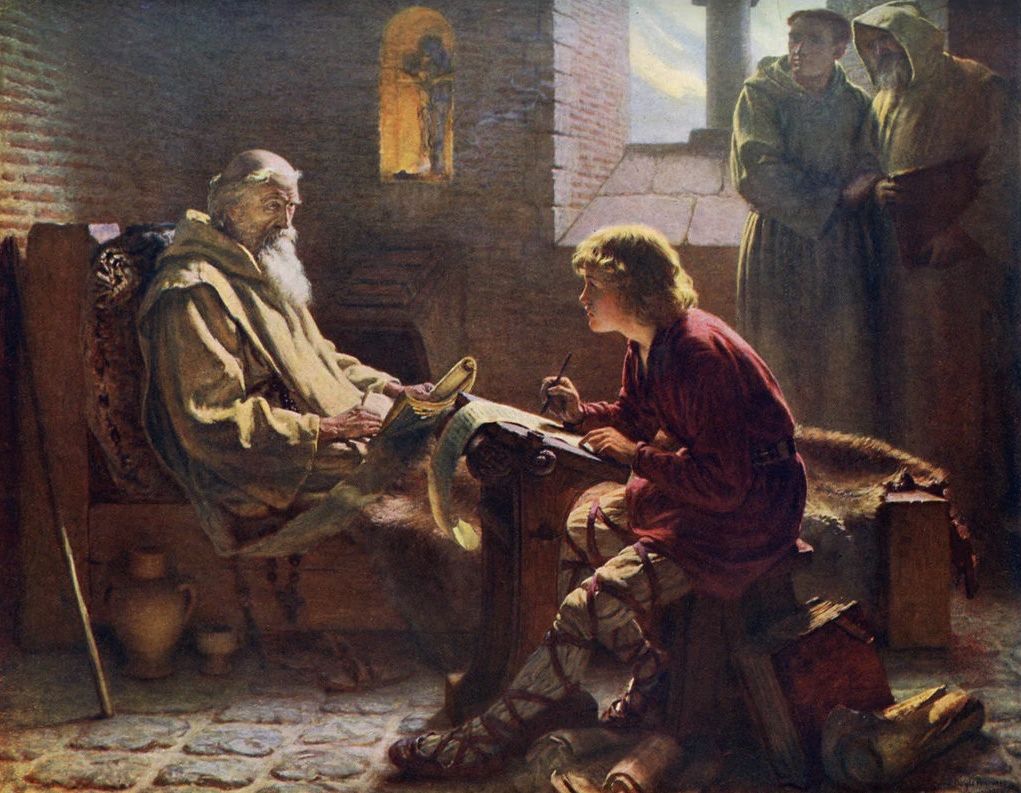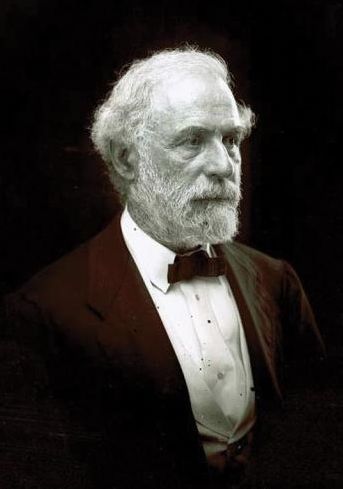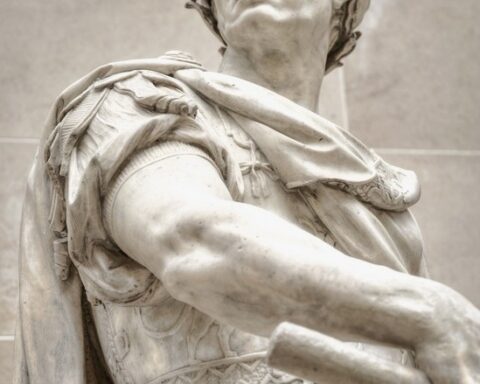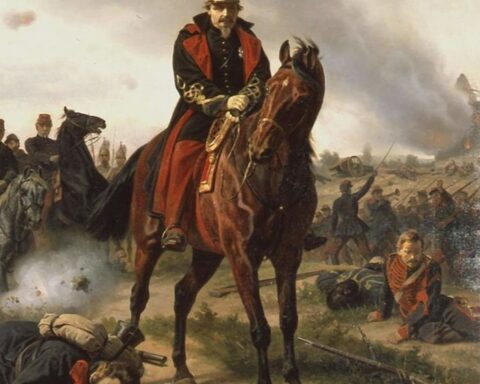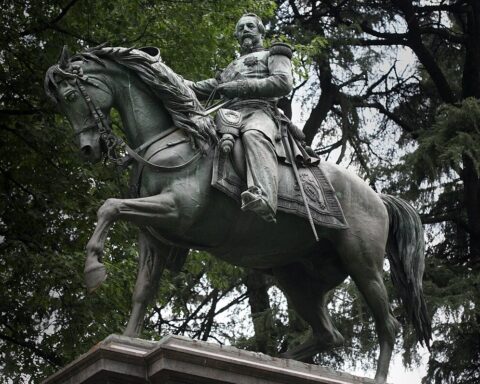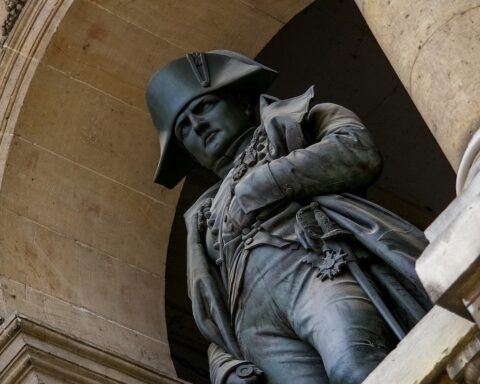Editor’s note: The following is extracted from Orations and Historical Addresses, by Samuel Furman Hunt (published 1908). Hunt delivered this address as Governor of the Society of Colonial Wars in the State of Ohio, at the First Grand Council, December 19, 1895.
In 1675, the number of Indians in New England was roughly computed at fifty thousand souls. They had been supplied with arms by unprincipled traders, which they had learned to use with deadly accuracy, and the possession of which gave them a dangerous consciousness of power. They were confined, in a good measure, by the continued extension of the English settlements to peninsulas and necks of land on the coast. Many of the tribes, consequently, began to suffer from insufficient room to procure subsistence and began to be impatient of English dominion.
Massasoit was the earliest and firmest friend of the English, and this friendship continued until his death. He was succeeded by his son, Wamsutta, who held sway among the Pokanokets. Wamsutta, only a few months after his accession to power, on some vague suspicion, was seized by a party of English and carried prisoner into Plymouth, where, in a few days afterward, he died of a fever, brought on by anger and irritation. Metacomat, his brother, more commonly known as King Philip, succeeded to the throne, and, from profound policy, evinced great friendship to the English. He maintained for nine years, with extraordinary dissimulation, the appearance of peace and good will, although he cherished feelings of revenge for the death of his brother, and the encroachments on his territory.
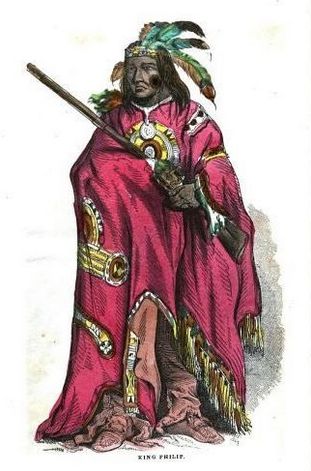
It is related that as early as 1671, in an arbitration arising from disputed territory, Philip subscribed a set of articles, in which he practically yielded almost every point in question, and, in a manner “delivered himself, body and soul, into the hands of the Plymouth authorities.” His motive, doubtless, was to blind his enemies as to the extent and dangerous nature of the conspiracy he was then meditating. His plan was nothing less than the complete extermination of the whites; and in its prosecution he displayed a policy, courage and perseverance, which, in a savage, has never been surpassed. To knit the tribes of New England, immemorially dissevered by traditional feuds and enmity, into a confederacy against a foe so terrible as the English, might well have seemed to the most sanguine a hopeless task. Yet such was the object to which Philip bent all his policy and energy, and in which, to a great extent, he succeeded. He resorted alike to argument, persuasion and menace with the utmost adroitness.
In the spring of 1675 Philip sent six embassadors to Awashonks, Queen of the Sogkonates, demanding that the tribe should join the league. A solemn dance was appointed, to decide the question, and Awashonks, that the opposite party might not be unrepresented, sent for Captain Benjamin Church, the only white man in her domains. Captain Church was one of the most famous Indian fighters in New England history, and had just settled in the wilderness of Sogkonate, or, as called by the English, Little Compton. He is described as a man of undaunted courage, of a sagacity fitted to cope with the wiliest tactics of Indian warfare, and, withal, of a kindly and a generous disposition, which, except when engaged in immediate hostilities, seems to have secured for him the respect and attachment of the wild tribes he so often encountered. His narrative, written in his old age, by his son, from his own notes and dictation, is one of the choicest fragments of original history in our possession. As a literary performance, it is quite respectable; but for vividness of detail and strength of expression, it is something more, and may well be entitled to rank with such rude and stirring productions as “The True Conquest” of Bernal Diaz, and the “True Adventures” of Captain John Smith. The title page of the second edition, which was printed in Boston in 1716, reads: “The Entertaining History of King Philip’s War, which began in the month of June, 1675; and also of Expeditions more lately made against the Common Enemy, and Indian rebels, in the eastern parts of New England: with some account of the Divine Providence towards Col. Benjamin Church, by Thomas Church, Esq., his son.”
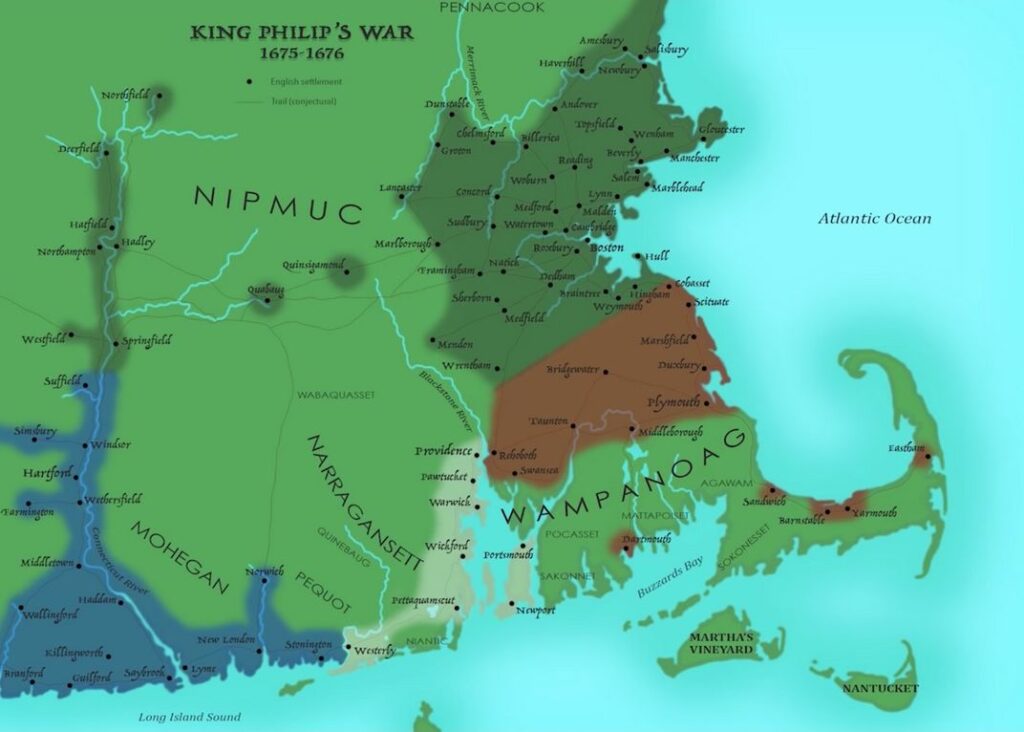
A grand council was held, on his arrival, at which the six Wampanoags appeared in great state, making a formidable appearance, with their faces painted, and their hair trimmed back in comb fashion, with their powder horns and shot-bags at their backs, which, among that nation, says a writer, is the posture and figure of preparedness for war. A fierce discussion ensued, and a privy councilor, named Little Eyes, attempted to draw Church aside in the bushes to privately dispatch him, but was prevented by others. The Englishman, with great boldness, advised Awashonks “to knock those six Mount Hopes—so-called from Mount Hope, the favorite seat of Philip—on the head, and shelter herself under the protection of the English.” The Queen dismissed the embassy, and, for a time, observed neutrality, if not fidelity.
It was now evident that Philip was preparing for active war. He sent all of the women and children of his tribe into the Narragansett Country, and held a great dance, lasting for several weeks, with all the warriors of his neighborhood. The first blow was struck on the twenty-fourth of June, 1675, in an attack on the little town of Swansey. Nine of the settlers were killed, and the rest fled, while the Indians fired their deserted dwellings.
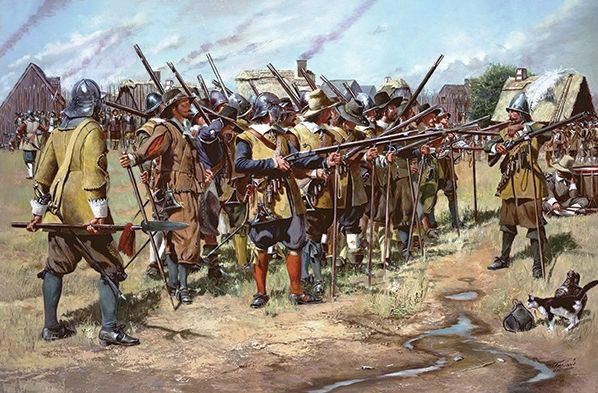
Soldiers were sent from Massachusetts, and Church, with a company from Plymouth, hastened to the frontier. Philip was compelled to flee, but only to ravage the country in other remote spots. Church, with only nineteen men, holding on in pursuit, at last, on the site of the present town of Tiverton, fell in with three hundred of the enemy. “The hill,” he tells us, “seemed to move, being covered over with Indians, with their bright guns glittering in the sun, and running in a circumference with a design to surround them.” The English defended themselves with much desperation and courage, until taken off by a vessel which came to their aid.
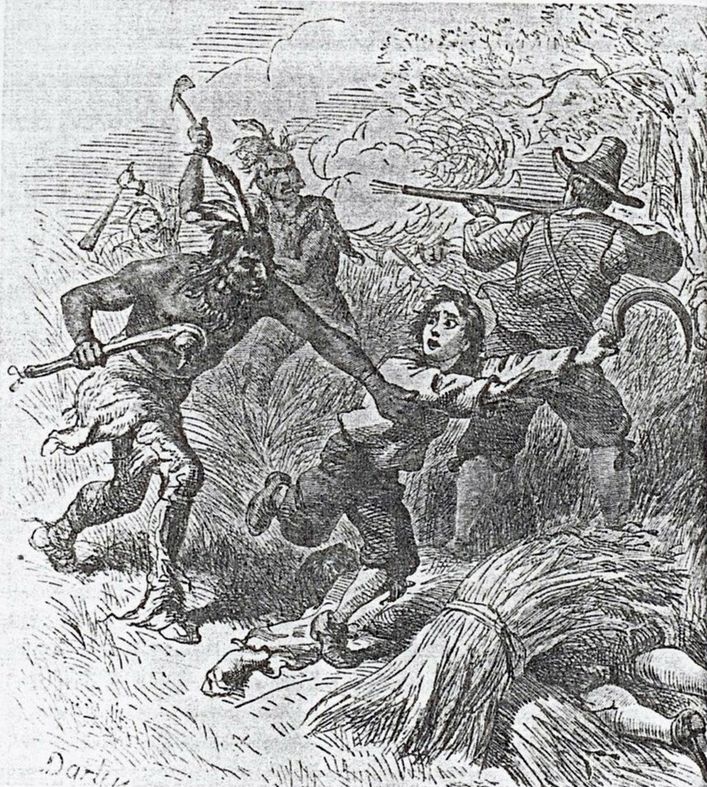
The English forces, at last uniting, after some indecisive engagements, compelled Philip and his warriors to take refuge in a great swamp at Pocasset. Philip, defeated, with a loss of thirty warriors, in another engagement, fled westward, and excited the more remote tribes to warfare. Numbers of the English were killed, and several flourishing villages on the frontier were burned. Philip, aided by the continually exciting causes of enmity, developed by war with a foe so indefinite as “the Indians,” had succeeded in awakening a general hostility among the numerous tribes of the frontier. From this time an almost continual succession of Indian attacks occurred, and town after town was laid in ashes. It was supposed that he was present at many of the scenes of midnight assault and massacre which, at that time, filled New England with alarm; but it is certain that he was seldom recognized. Once, it is said, he was seen at a successful attack, riding on a black horse, leaping fences, and exulting in the scene of destruction; and, again, that he once ordered an arm chair to be brought forth, that he might enjoy at his ease the conflagration of a village.
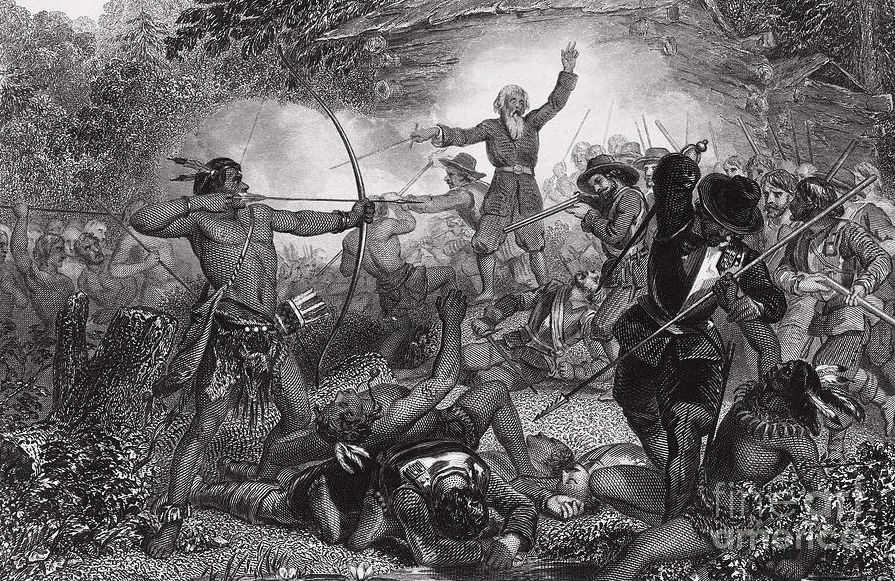
The people of Hadley, on the first of September, assembled at the meeting house, armed as usual; and, but for an unexpected assistance, would probably have been overwhelmed. An old man, with long white hair, dressed in the fashion of former days, suddenly appeared, and assumed the command. By his courage and skillful strategy, he put the enemy to flight, and then disappeared as suddenly and mysteriously as he came. Many of the people supposed him to be an angel, providentially sent to their aid; but he was, in reality, Major General Goffe, one of the regicide judges of King Charles, who, with his companion, Whalley, had been concealed for ten years in the cellar of Reverend Mr. Russell, minister of the town. “There are few incidents in history more striking than that of the old soldier,” says the narrator, “so long immured in this dismal habitation, roused once more by the clash of arms and the discharge of musketry, to mingle, for the last time, in the half-forgotten scenes of combat, and then shrinking back forever into the gloom and twilight of his subterranean abode.”
In the following October, a body of seven or eight hundred savages attacked the garrison at Hatfield. The Indians were driven off, and suffered greatly from want and exposure during the ensuing winter. Philip and his warriors, it was supposed, had taken refuge with the Narragansetts. The English now resolved to crush the latter tribe, as the most easily accessible, on account of the shelter they had afforded the enemy.
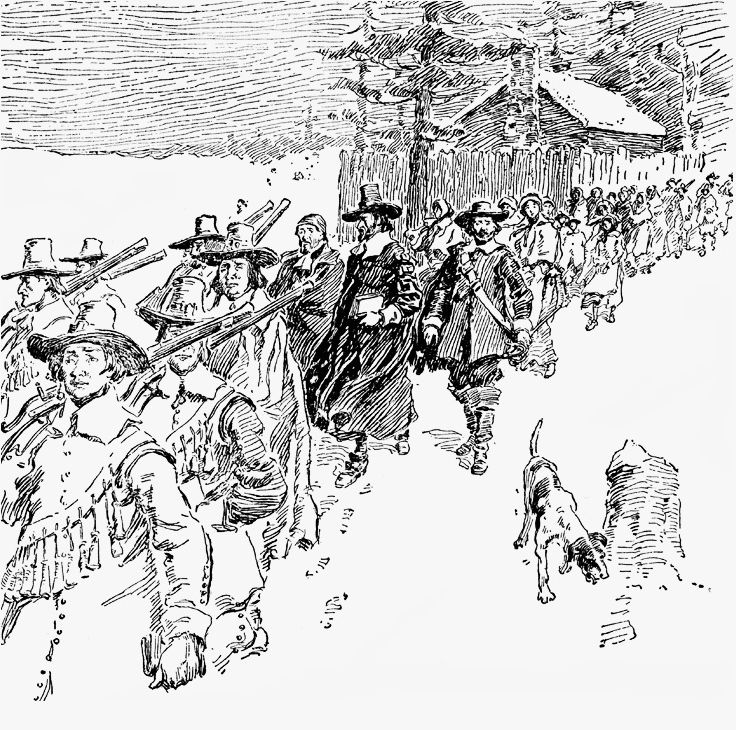
Five hundred soldiers, under the command of Josias Winslow, governor of Plymouth, were sent against this tribe, and on the afternoon of December 19, 1765, a bitter winter’s day, after a forced march, arrived at their principal fort. It was built on a plateau of elevated ground of perhaps three or four acres. in a great swamp, and the only access to it was by the trunk of a large tree, lying in the water. The place of the fort was about seven miles nearly due west from Narragansett, South Ferry, and in South Kingston, Rhode Island. The assailants made their way across this bridge of peril, with much loss, and after a desperate battle within, lasting for some hours, firing the fort, they renewed the terrible tragedy of Groton. Seven hundred of the Narragansett warriors are said to have fallen in the fight, and nearly half that number perished of their wounds. It is said that five hundred wigwams were burned with the fort, and two hundred more in other parts of Narragansett.
The defeated Narragansetts, however, did not fall unavenged. Eighty of the English were slain in the engagement, and one hundred and fifty were wounded,—many of whom perished on the return march. The situation was rendered more intolerable not only from the severity of the cold, but because of a tremendous storm, which filled the atmosphere with snow, and through which they were compelled to march eighteen miles before they arrived at their headquarters.
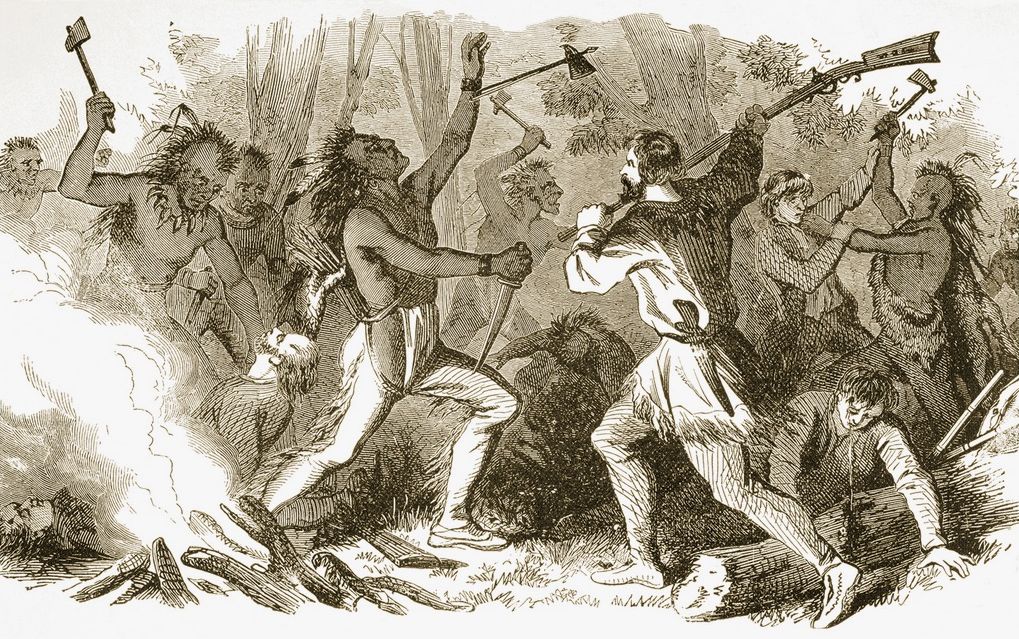
Canonchet, the brave young sachem of the Narragansetts, with the remainder of his forces, took refuge in the west, where, in concert with Philip, he planned schemes of vengeful reprisal. Lancaster and Medfield—the latter only twenty miles from Boston—were burned, and nearly a hundred of the settlers were killed or carried off as prisoners. The brave Canonchet, having raised a force of many hundred men, ventured eastward with a few warriors to procure seed for planting, and was shot at Stonington. “He refused,” says a writer, “to purchase his life by procuring the submission of his injured tribe, and met his death with the highest courage and fortitude—a true patriot, and a hero, whose soul, to judge from his brief sayings, was cast in an almost classical mold.”
In the spring of 1676, the war continued to rage with alternate success. Part of Plymouth was burned. A force of cavalry, aided by a body of Mohegans, was especially employed against them. Two hundred were made prisoners on one occasion; five or six hundred surrendered on a doubtful promise of mercy, and many migrated to the west. Philip and his people still held out, and kept the settlements in continual dread of an attack.
The Sogkonates, at this time, were in alliance with Philip, but they became detached from the hostile league, and declared to the English that “they would help them to Philip’s head ere the Indian corn be ripe.” It is said that the desertion of this tribe, and the ceremony of swearing allegiance to the English, “broke Philip’s heart as soon as he understood it, so as he never rejoiced after, or had success in any of his designs.”
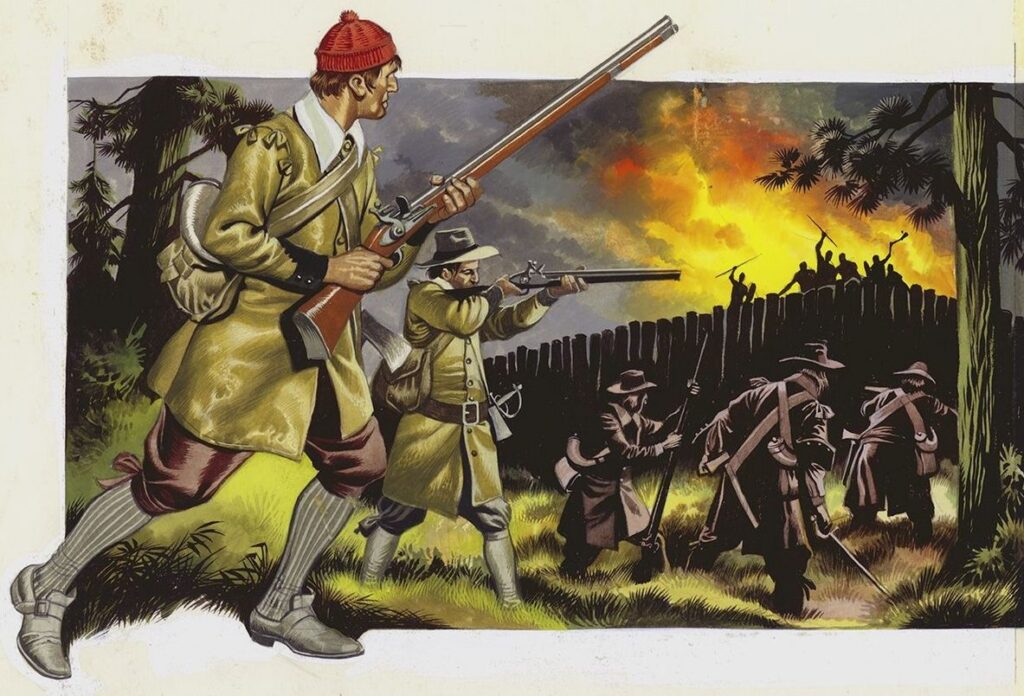
With an English force, and a considerable number of Indian warriors, Church, in June, 1676, commenced an active campaign against the enemy, scouring the woods in all directions, and killing or making prisoners a great number of the hostile savages. Once he fell in with Little Eyes, who would have killed him at Awashonk’s dance, and his Indians wished him to be revenged, but, instead, he afforded him especial care and protection.
In following the enemy into the Narragansett country, Church came to Taunton River, over which the Indians had felled a large tree for the purpose of crossing. On the stump, at the opposite side, sat a solitary warrior. Church quietly raised his gun, but was prevented from firing from the suggestion that it was a friend. It was Philip himself, musing drearily, no doubt, on the fallen fortunes of his race. Before a gun could again be leveled, he sprang up and bounded like a deer into the forest. The Indians were posted in a swamp near at hand, and after a short skirmish, were defeated, and one hundred and seventy-three, including women and children, were captured. Philip and most of his warriors escaped, but his wife and children were among the prisoners. His wife described his condition as forlorn in the extreme, and said, that after the last misfortune he was quite inconsolable.
In all the present region washed by the circling Narragansett, there is no spot more beautiful than that miniature mountain, the home of the old sachems of the Wampanoags. The unhappy warrior, after seeing his followers one after another fall before the English, or desert his failing cause, had betaken himself, like some wild animal hard driven by the hunters, to his ancient haunt, the former residence of his father, the friendly Massasoit. With what feelings the last of their number, a fugitive before inveterate foes and recreant followers, looked on the pleasant habitation of his fathers, may more easily be imagined than described. He sternly rejected all proposals for peace, and even slew one of his own followers who had ventured to speak of treaty with the English. The brother of this victim, naturally enraged and alienated from his cause, at once deserted to the enemy, and gave the information which led to his final ruin.
A few brave warriors remained faithful to him, and with these and their women and children, Philip had taken refuge in a swamp hard by the mountain, on a little spot of rising ground. On that troubled night, the last of his life, the sachem, we are told, had dreamed of his betrayal, and awakening early, was recounting the vision to his companions, when the foe suddenly came upon him. His old enemy, Church, who was familiar with the ground, had posted his followers, both English and Indian, so as, if possible, to prevent any from escaping. After several volleys had been rapidly fired, Philip, in attempting to gain a secure position, came in range of an ambush, and was instantly shot through the heart by one Alderman, an Indian under Church’s command. He fell on his face with his gun under him, and died without a struggle, Saturday, August 12, 1676. Most of the warriors, under old Annawon, Philip’s chief captain, made their escape.
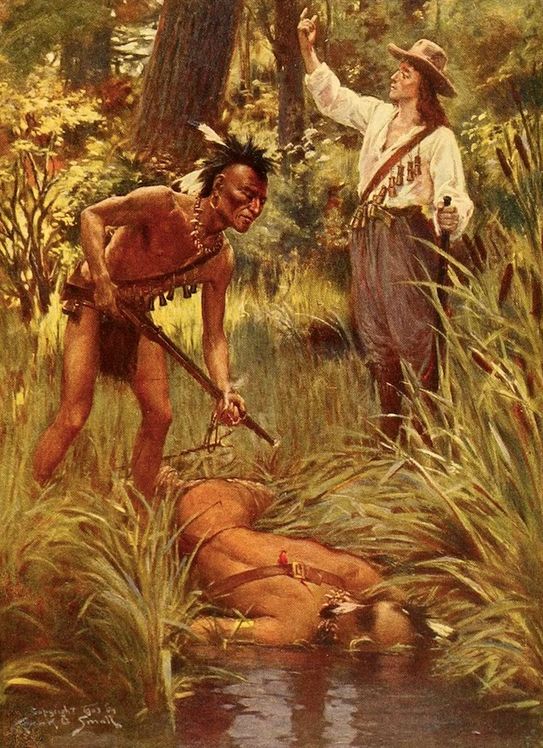
The body of the unfortunate Philip was drawn from the swamp, a spectacle of exultation for the army, and Church, following the barbarous fashion of the time, declared that, forasmuch as he had caused many an Englishman’s body to be unburied, and to rot above ground, no one of his bones should be buried. “This Agag” says Cotton Mather, “was now cut into quarters, which were then hanged up, while his head was carried in triumph to Plymouth, where it arrived on the very day that the church there was keeping a solemn thanksgiving to God. God sent ’em the head of a leviathan for a thanksgiving feast.”
The sinewy right hand of the dead warrior, much scarred by the bursting of a pistol, was given to Alderman, to show to such gentlemen as would bestow gratuities upon him. Thus died Philip of Pokanoket, the last sachem of the Wampanoags, the originator and head of that terrible confederacy, which so long kept New England in dread and consternation, and which, at one time, seemed almost to threaten its entire destruction. He was, undoubtedly, a man far superior to the generality of his race, in boldness, sagacity, and policy; his powers of persuasion were extraordinary, and the terrifying results of his enmity sufficiently evinced the ambitious nature of his scheme, and the genius with which it was conducted. His own sufferings and the injuries of his family have awakened in succeeding generations somewhat of that sympathy which is always due to misfortune; and though the defeated leader of a ruined confederation, his name, more than that of any other of the Indian race, has always excited the interest, if not the admiration of mankind.
Annawon and the few warriors whom death and destruction had yet left to maintain the hopeless cause of the Pokanokets, were soon taken prisoners by surprise, and all their guns, which were stacked at the head of Annawon, were secured. It is interesting to follow the historian as he describes the romantic incidents of this wonderful surprise: How the whole company, English and Indians, wearied with pursuit and flight, were soon wrapt in slumber, all but the two leaders, who lay looking at each other by the glimmering light of the embers: how Annawon arose and disappeared in the darkness, but soon returned bearing a powder horn, a scarlet blanket, and two splendid belts of wampum, the regalia of the unfortunate Philip: how he solemnly invested Church with these royalties, as the victor over the last of the hostile tribes; and how, in the words of the Captain, “they spent the remainder of the night in discourse, and Annawon gave an account of what mighty success he had formerly in war against many nations of Indians, when he served Asuhmequin (Massasoit), Philip’s father.”
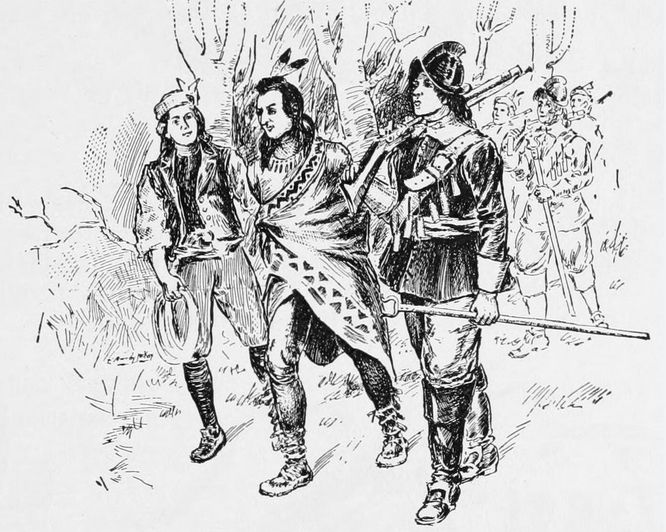
The capture of Annawon, who was afterwards put to death, ended King Philip’s war—a war which, though it lasted only a year and a half, seemed almost to threaten the destruction of New England. Thirteen towns had been laid in ashes, and many others partially destroyed; six hundred dwellings were burned by the enemy; six hundred Englishmen had lost their lives, and the prosperity of the whole country had been severely checked and retarded. But if misfortune had been experienced by the victim, utter ruin and almost annihilation had been the part of the vanquished. In war, in conflagration, by starvation and cold, such vast numbers had perished that the effective force of the hostile savages was completely broken, and many of their tribes were nearly extinguished. The son of Philip, a child only nine years of age, was shipped as a slave to Bermuda. Thus perished a nation:
“Indulge, our native land, indulge the tear
That steals impassioned o’er a nation’s doom:
To us each twig from Adam’s stock is dear
And tears of sorrow deck an Indian tomb.”
Two hundred and twenty years to-night have elapsed since that eventful day in December, 1675. We have passed from the Colonial period through the Revolution to the time of the Republic. The communities founded by the men who fought King Philip’s war have gradually grown up to great commonwealths. If magnanimity were wanting at times, it must be remembered that there was needed that earnestness which can alone successfully contend with great obstacles, either human or natural—with civil tyranny and religious persecution—with the privations and dangers of the wilderness, and the unsparing enmity of its savage inhabitants.
These two hundred and twenty years have been crowned with the blessings of liberty and order and law. The civilization which began on the bays and inlets of the Atlantic has extended in parallel lines across to the Pacific. New England, said Mr. Webster, contains in its system three institutions which alone would have sufficed to make it free,—the Town Meeting, the Congregational Church, and the Common Schools. We can best prove worthy of Colonial ancestry by revering the arts and arms, and maxims imperial of Colonial glory.
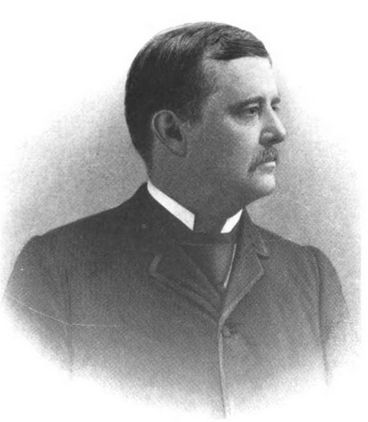
(1844-1907)

